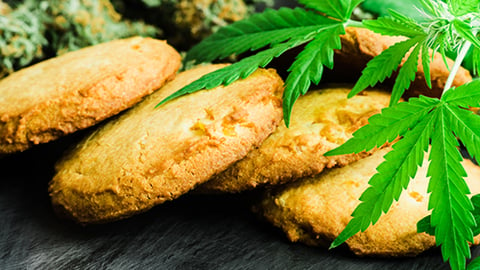CBDs in Grocery Retail: What Are the Advantages and Pitfalls?
Cannabidiol, or CBD, is the most well-known non-psychoactive compound found in cannabis. The compound has surged in popularity, thanks to legalization throughout most of the United States. It has also gained traction because of the research available on the potential benefits the plant has to offer.
The other biggest factor in the plant’s popularity is the anecdotal evidence from patients with anxiety, depression, epilepsy and other serious conditions. The relief they report from symptoms caused by their conditions, thanks to CBD, has been noted and observed, and is still being studied, with promising results.
The demand for CBD is kindled by consumer interest, with no sign of stopping anytime soon – which means there’s a massive opportunity for countless business owners across the nation. While some business owners have already partnered up in the CBD industry, most grocery stores have so far declined to enter into any CBD partnerships.
Why are grocery stores not taking advantage of the profit the CBD market has to offer? Let’s dive into some of the advantages and disadvantages of grocers carrying CBD at their stores, to find out what might be holding most grocery stores back from taking the plunge into the non-psychoactive side of the cannabis industry.
Not Every CBD Company is Equal
The biggest disadvantage for grocery stores is the inconsistency of some CBD products. Without the right conditions, a grocery store can be held liable for selling or advertising products that don’t meet the necessary standards in place. Grocers should keep these factors in mind if they’re considering a CBD partner:
Consistency of Minimal THC
The federal legal limit of tetrahydrocannabinol (THC), the main psychoactive compound in cannabis, in any CBD product is no more than 0.3 percent. CBD products must be tested through a third-party lab to conclude that they match under the legal limit. Unfortunately, inconsistency in testing and improper testing altogether are currently common nuisances in the CBD world. Grocery stores must test every CBD product that enters their facilities to ensure compliance.
Sourced in the USA
Many CBD companies try to save money by sourcing their hemp from China, Russia or another country with standards that aren’t as strict. The stringent regulations placed on growers in the United States ensure a hemp product that’s free of pollutants, metal waste, pesticides and other contaminants that lessen the efficacy of CBD.
Full Spectrum
Another aspect that enhances the efficacy of CBD is whether the product is full spectrum or a CBD isolate. Full-spectrum cannabis, even without the THC, includes all of the other cannabinoids that aren’t as known but still partner up with CBD to improve the effects of the plant overall. This can still be completely THC-free, but full spectrum is generally the preferred of the two.
Always Compliant
A CBD company should have examples of a positive history with prior clients. It should also demonstrate the ability to remain compliant through all of the stringent regulations placed upon it. Grocers should make sure to look at a company’s (multiple) lab test results from a third-party testing facility to confirm that the company is a reputable CBD wholesale partner.
Testing May Need Some Improvement
An adjunct assistant professor at the University of Pennsylvania’s Perelman School of Medicine’s Psychiatry Department, Marcel Bonn-Miller, performed a study in 2017, which found that nearly 70 percent of all of the CBD products tested and analyzed were considered to be mislabeled. This statistic urges a more rigorous standard for testing the products and reinforces the need to have products tested through multiple third-party labs.
Not Legal Everywhere
While almost the entire country has legalized CBD, three states still haven’t: South Dakota, Nebraska and Idaho. Grocers that have stores nationwide may have a store in a state where cannabis is recreationally legal, a state where only CBD is legal, and another state where the plant in any shape or form is completely illegal.
This is due in part to the odd federal classification of the plant at the present time: The U.S. Food and Drug Administration has approved a prescription medicine that contains CBD, but the U.S. Drug Enforcement Administration continues to classify the entire cannabis plant as a Schedule I drug (defined by the federal government as drugs with no currently accepted medical use and a high potential for abuse).
Differing Values
The packaging and art of many CBD companies’ products imply a staggeringly different ideal and target audience from those of most grocery stores. While that’s not saying that there’s only one specific audience for grocery stores, grocers generally try to present themselves as family-oriented, friendly spaces to shop. Some CBD brands don’t hesitate to put illegal medical claims on their products, against the approval of the FDA, discouraging grocers from placing these products on shelves.
Turning the Script
The first grocery stores to accept CBD products have generally been aimed toward health and wellness, like Alfalfa’s Market and Lucky’s Market. The biggest advantage is that when a grocer partners with a reputable CBD wholesaler, the results are increases in profit, consumer interest and store popularity. While today it’s a sensitive subject, the future for business relationships between CBD companies and grocers is still bright.







